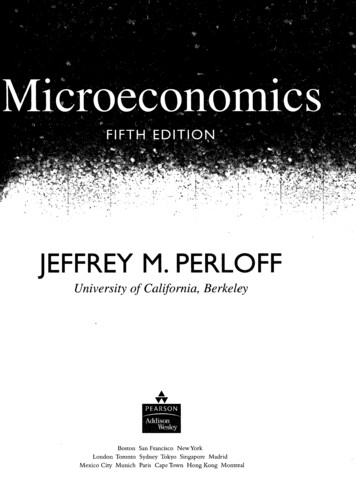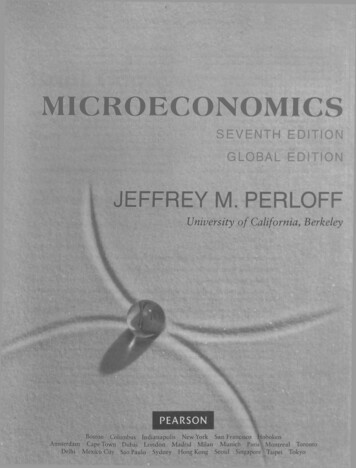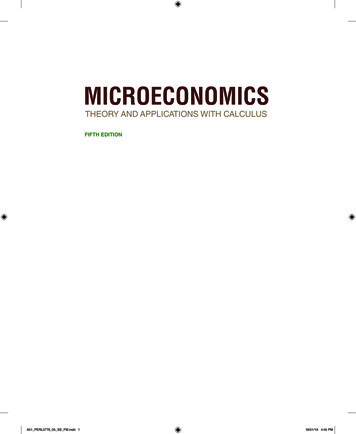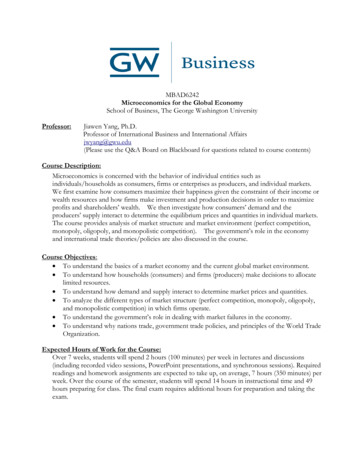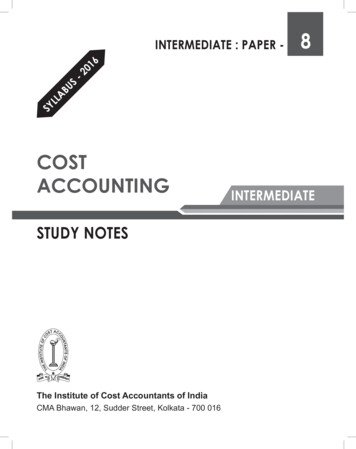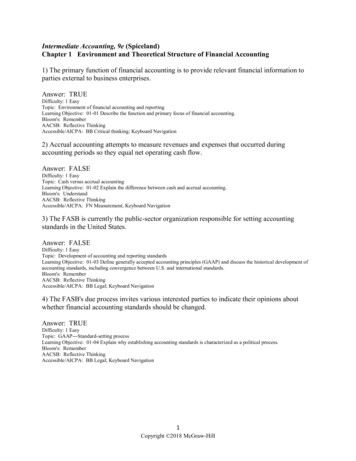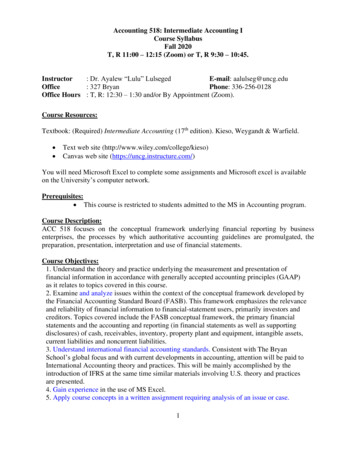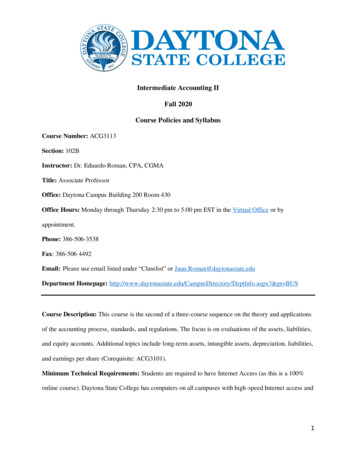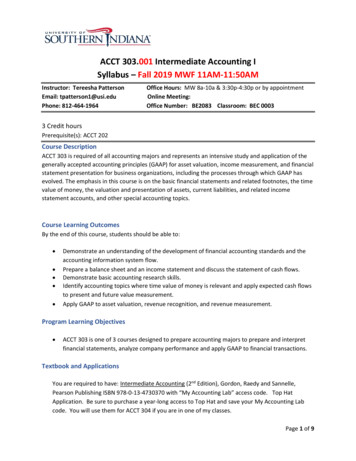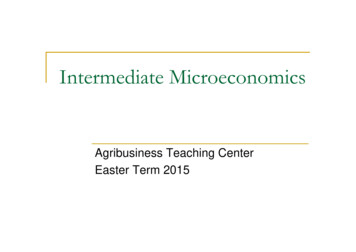
Transcription
Intermediate MicroeconomicsAgribusiness Teaching CenterEaster Term 2015
Logistics Instructor: Gurgen Aslanyan (Dilijan TRC) E-mail:Gurgen.Agribusiness@gmail.comHome-page: http://home.cerge-ei.cz/gurgen/teaching/Micro.html Place:Time: MondaySaturdayOffice Hours:ATC, Room B10:00-11:50am10:00-11:50amAfter class
Course Description and Objectives Course DescriptionThis module covers an intermediate-level course in Microeconomic theory. Itconcentrates on formalizing and applying the concepts introduced in theprinciples (Agricultural Economics) course. The module begins with studyingtheories of the consumer and the producer. Next, we will combine both theoriesto individual markets, including perfect competition, monopoly, and oligopoly.The module will end with an analysis of the efficiency of competitive marketsand the cases when the competitive markets may fail (e.g. asymmetricinformation, externalities, etc.). Course ObjectiveThe objective of this course is to convey intermediate concepts ofmicroeconomic theory to students developing their analytical thinking skills. Theemphasis of this course is on reasoning and understanding, not memorising. Itis best seen as a course that provides the foundations of economic analysis andthereby opens the door to other economics courses, both applied andtheoretical.
Text Nicholson, W. & Snyder, C. (2010)Theory and Applications of Intermediate Microeconomics.Main Textbook. A edition can also be used. Perloff, J.M. (2007). Microeconomics (Almost an alternative tothe main text)Frank, R.H. (2007). Microeconomics and Behavior. (Providesgood intuition for most of the topics)Schotter, A. (2003). Microeconomics: A Modern Approach.(Game theoretic approach, advanced text)Binger, B. R., & Hoffman, E. (1998). Microeconomics withCalculus. (For advanced students)
Grading Final Mark QuizzesSmall ProjectsParticipation/AttendanceMidtermFinal Exam25%10%5%30%30%Academic IntegrityAll students that violate the academic honesty code will receivea failing grade. Academic honesty includes receiving and/orproviding unauthorized help from/to other students.
Course references and utilityDemand curves and exchange equilibriumProduction, Costs and Profit maximisationSupplyPerfect competitionGeneral Equilibrium and EfficiencyUncertainty and Game TheoryMonopolyOligopolyInput Markets and Value of TimeExternalities and Public GoodAsymmetric informationRoughly follows week order. Changes will be announced.
MicroeconomicsTrees or Forest?Economics:Microeconomics, Macroeconomics, Econometrics
MicroeconomicsMethodology!Economics is the study of mankind in the ordinary business of life - Alfred Marshall
Münchhausen Trilemma (Epistemology) Circular proof (argument)Proving the proof (ad infinitum)Axiomatic proof (foundationalism) Fallibilism Inability to disprovePyrrhonism
Economic Modelling AssumptionsAbstractionMathematical baseMath proof and conclusionComparative staticsCeteris paribus
Thinking like an economist Cost benefit analysis Reservation wageOpportunity costs
Thinking like an economistZheng He v ColumbusWhy Europe (and not China) colonised the world?
Formal Microeconomics Consumer theory Producer theory PeopleHouseholdsApplicationsInternal organisationIndustrial organisationEquilibrium ExistenceEfficiencyMicroeconometrics, behavioural econometrics, experimental economics
Consumer TheoryPEOPLE CHOOSE THE BEST THINGS THEY CAN AFFORD
Consumer TheoryPEOPLE CHOOSE THE BEST THINGS THEY CAN AFFORD
Neoclassical Theory of Consumption
Neoclassical Theory of Consumption
Neoclassical Theory of ConsumptionThe human or homo economicus The economic agent RationalEgoistic (self-interested)
Neoclassical Theory of Consumption
Neoclassical Theory of Consumption
Rationality assumptions andIndifference Curves
Indifference curves
Indifference curves
Indifference curves
Indifference curves
Indifference curves‘No-No-No’ cases
Indifference curvesSpecial cases
Marginal Rate of Substitution
Diminishing Marginal Rate of Substitution
Utility
Theorem of Debreu
Utility function and Indifference curves
Monotonic transformation
Perloff, J.M. (2007). Microeconomics (Almost an alternative to the main text) Frank, R.H. (2007). Microeconomics and Behavior. (Provides good intuition for most of the topics) Schotter, A. (2003). Microeconomics: A Modern Approach. (Game theoretic approach, advanced text) Binger, B. R., & Hoffman, E. (1998). Microeconomics with Calculus. (For advanced students) Grading Final Mark
